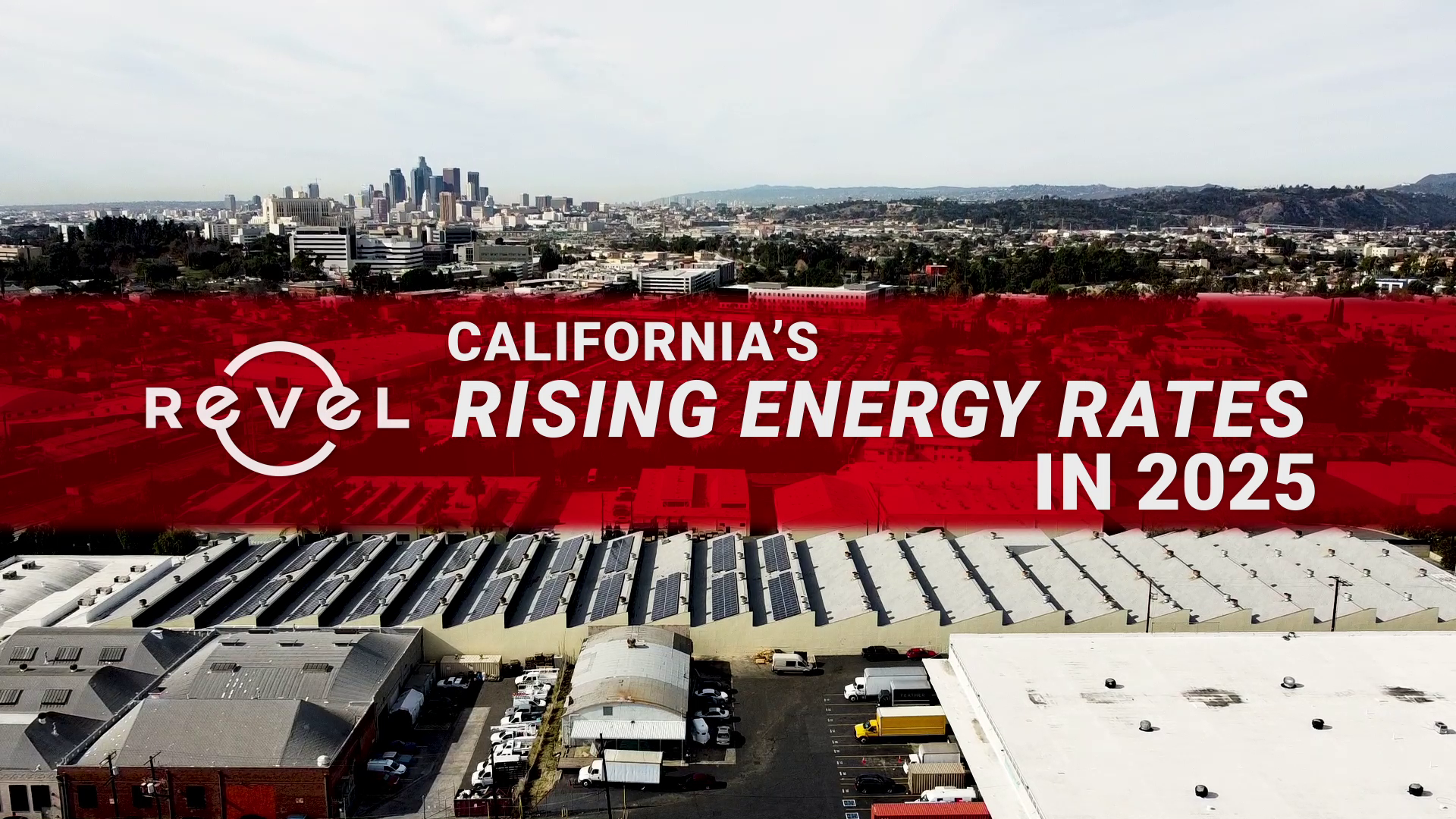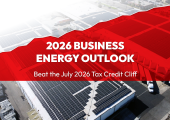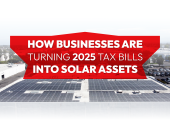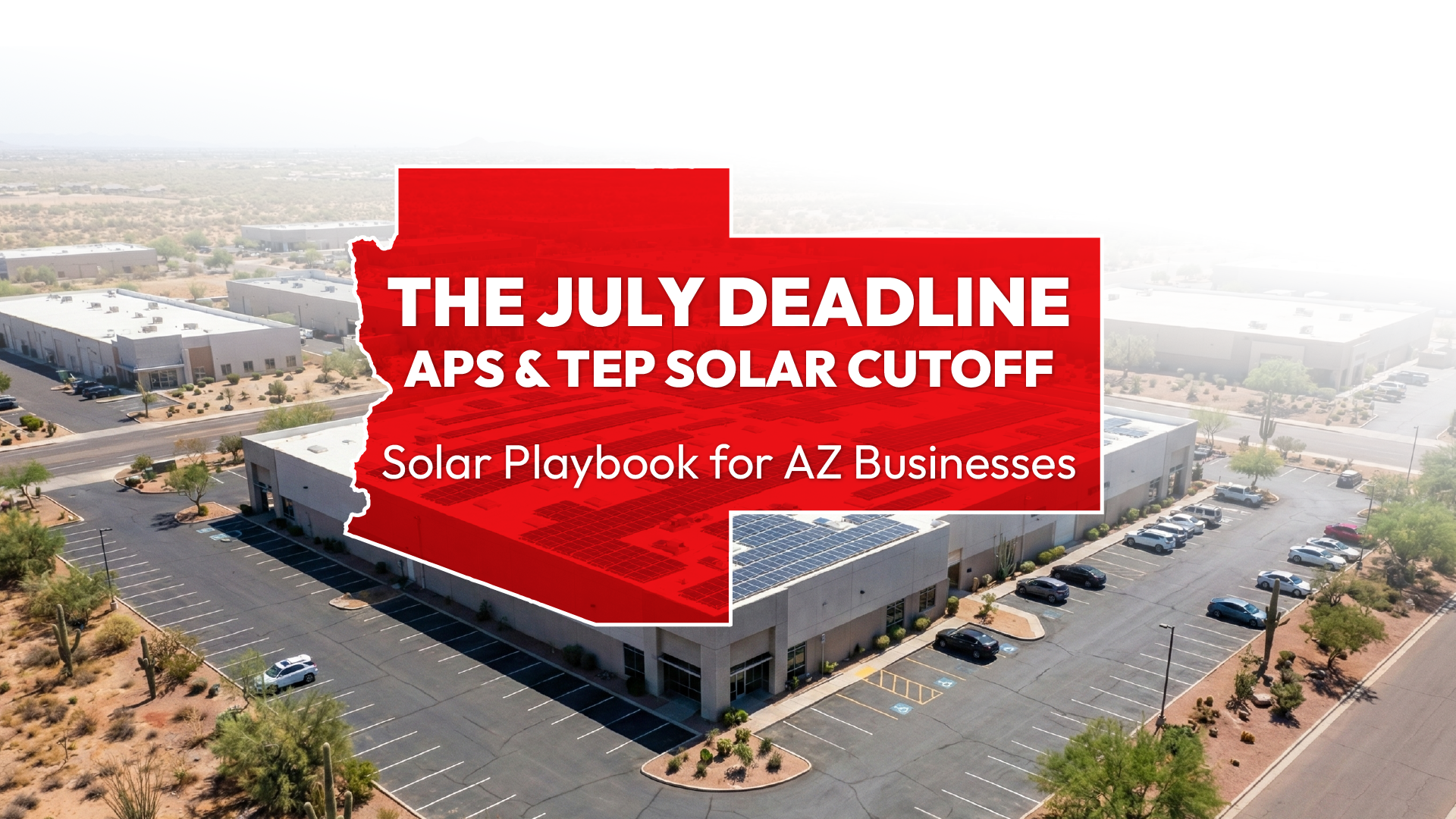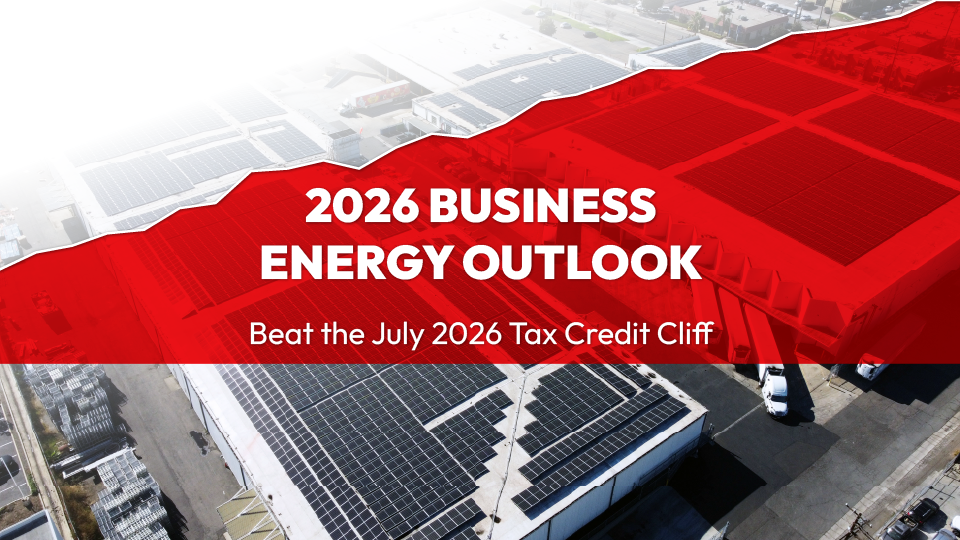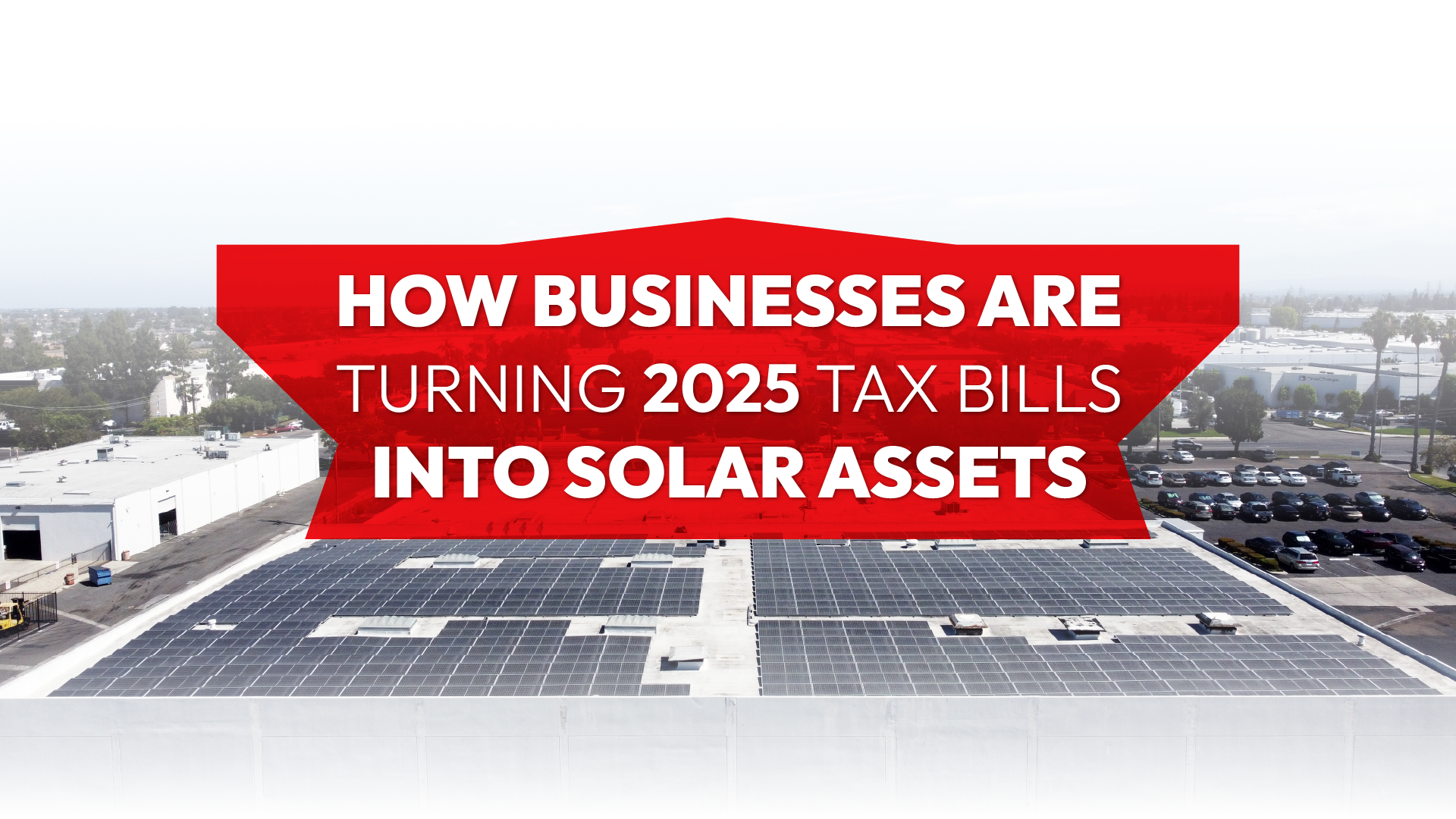2025 Energy Costs in California: Why Now Is the Time to Go Solar
California businesses are bracing for a dramatic rise in energy costs as the state’s electricity demands continue to surge in 2025. While powering energy-intensive artificial intelligence (AI) technologies and supporting the clean energy transition are key factors, the primary driver behind rising rates is unchecked utility spending.
Investor-owned utilities have increased their transmission and distribution (T&D) spending by 300% since 2005, passing these costs onto ratepayers.
For businesses, this escalating trend makes 2025 a pivotal year to consider adopting commercial solar and energy storage solutions to hedge against these financial pressures. Here’s why acting now can future-proof your business and lock in savings.
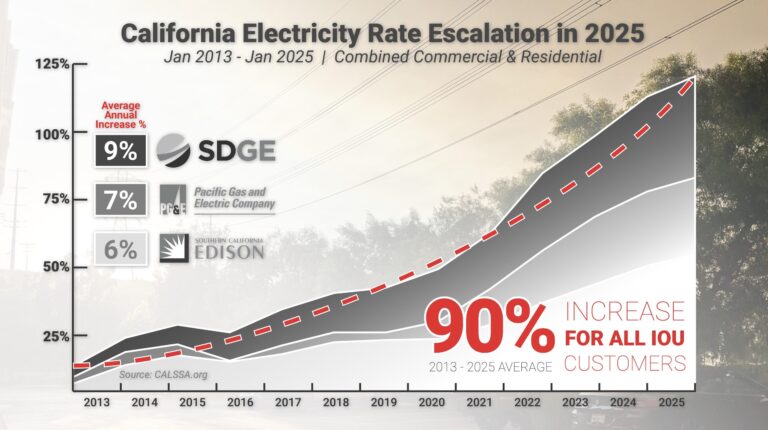
Rising Energy Costs: What’s Driving the Increase?
The Myth of the “Cost Shift”
Utilities often argue that when customers adopt solar, it forces them to increase rates on everyone else because those customers stop paying as much into the grid – a concept called the “cost shift.” However, recent research from the California Solar and Storage Association (CALSSA) debunks this claim.
CALSSA’s thorough analysis highlights critical flaws in the utilities’ argument, such as ignoring the benefits that installed solar brings to the grid. Solar adopters not only reduce their own energy bills but also decrease the load utilities need to serve, freeing up electricity for other grid users. Moreover, solar installations lower overall grid costs by reducing the need for expensive infrastructure investments.


The Public Advocates Office’s $8.5 billion “cost shift” estimate is erroneous, primarily due to skewed calculations that scapegoat solar. M.Cubed Consulting conducted thorough research to learn the corrected analysis reveals the true savings:
- $3.99 billion for self-generated electricity
- $2.46 billion for rates and solar output
- $2.16 billion for historic utility savings
- $0.72 billion in displaced CARE subsidies
- $1.42 billion in customer bill payments
This adds up to $2.3 billion net savings, showing that solar benefits the grid and ratepayers alike.
A Long History of Solar Savings
From 2005 to 2025, California’s rooftop solar capacity – now at 14,786 MW – has kept peak electricity demand flat, defying earlier projections by CAISO that peak loads would increase by 15,000 MW. Without distributed solar, utilities would have faced higher infrastructure costs and increased energy demand. Instead, solar saved everyone money while utilities continued to increase their transmission and distribution (T&D) spending -a major driver of rising electricity rates.
CALSSA’s findings show that 90% of T&D rate increases are due to rising utility spending, not solar adoption. Despite this, utilities used the “cost shift” narrative to push for harmful changes to net energy metering (NEM3), undermining solar’s financial viability for future adopters.
The Growing Burden of Utility Spending
Utility spending has risen by 300% from 2005 to 2025, with California’s investor-owned utilities continuing to pass these costs onto ratepayers. For example, PG&E was recently approved for a $15 billion loan – a debt they will recover through higher electricity rates.
The Growing Demand from AI Technology
The increasing adoption of AI is driving a significant uptick in energy consumption. Data centers, the backbone of AI technologies, require massive amounts of electricity to process and store data. According to Utility Dive, AI-related data centers are expected to see a dramatic rise in power usage as demand for machine learning and predictive algorithms accelerates. In California, a hub for tech innovation, this trend is amplifying stress on the state’s grid and pushing energy rates even higher.
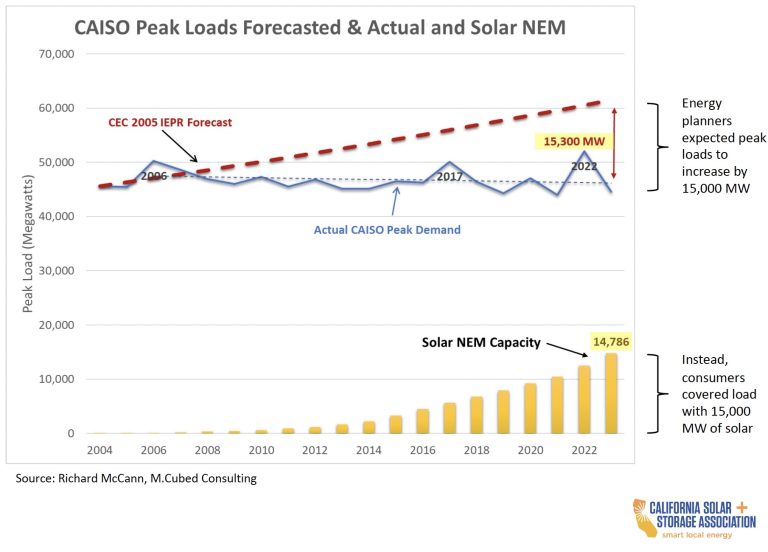
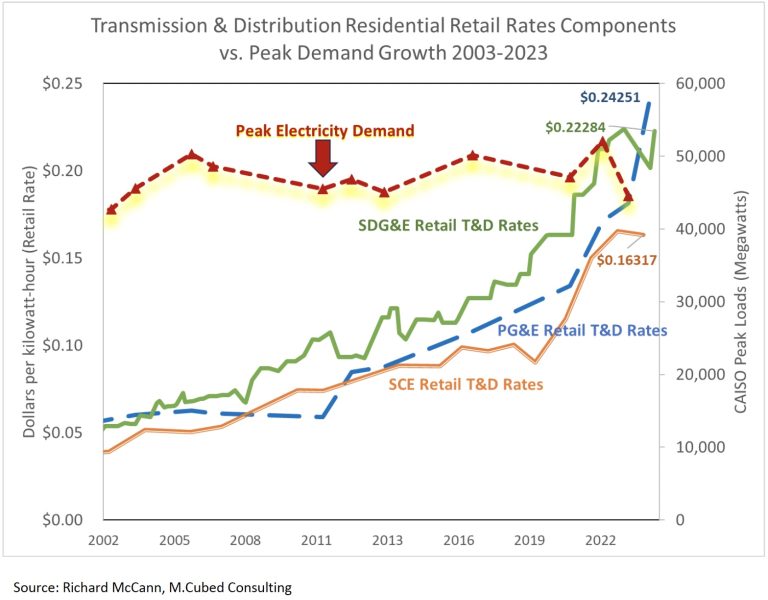
The Business Case for Going Solar
Incentives Are Here Now - But They Won’t Last Forever
The U.S. Department of Energy’s loan and grant programs for clean energy projects have seen a significant uptick, as reported by Energy-Storage.news. This influx of funding, combined with the federal Solar Investment Tax Credit (ITC), makes 2025 an opportune time to invest in solar.
These incentives are not guaranteed to remain indefinitely, and businesses that act now can secure financial benefits before potential program adjustments.
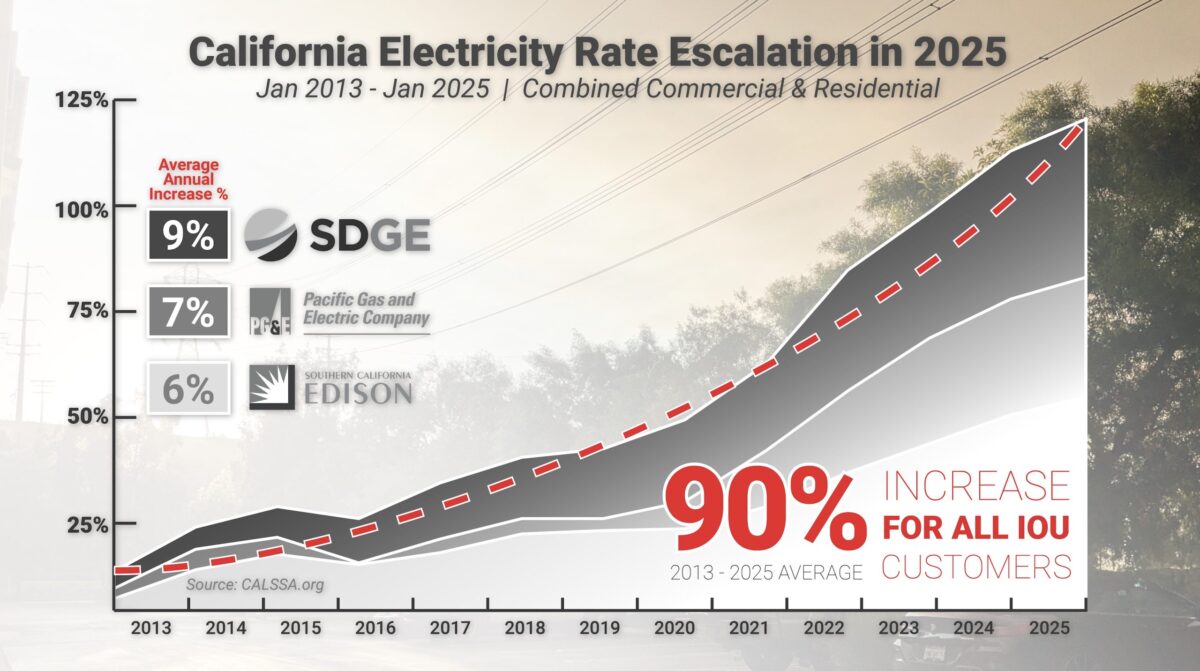
Hedge Against Rising Costs
By installing commercial solar systems, businesses can lock in predictable energy rates for decades. Solar and energy storage solutions allow companies to generate and store their own electricity, reducing dependence on volatile grid prices. With California electricity rates projected to keep rising costs in 2025, solar energy provides a practical solution to offset these growing cost increases.
Maximize Incentives and Tax Benefits
The federal ITC, which currently offers a 30% tax credit for solar installations, remains a powerful financial incentive. Coupled with state-level rebates and grants, businesses can significantly offset the upfront costs of going solar. Our recent blog post here highlights how leveraging these incentives now can position companies for long-term tax relief.
Sustainability as a Competitive Advantage
Investing in renewable energy doesn’t just make financial sense; it also enhances a business’s reputation. Customers, investors, and partners increasingly value sustainability. By going solar, businesses can demonstrate their commitment to reducing carbon emissions and supporting the clean energy transition while also aligning with corporate social responsibility goals.
Why Energy Storage Complements Solar
While solar panels generate power during the day, energy storage systems ensure that businesses can use that power during peak demand times or outages. This capability is especially critical in California, where high electricity demand often coincides with peak pricing periods. Combining solar with energy storage creates a resilient, cost-effective energy solution tailored to modern business needs.
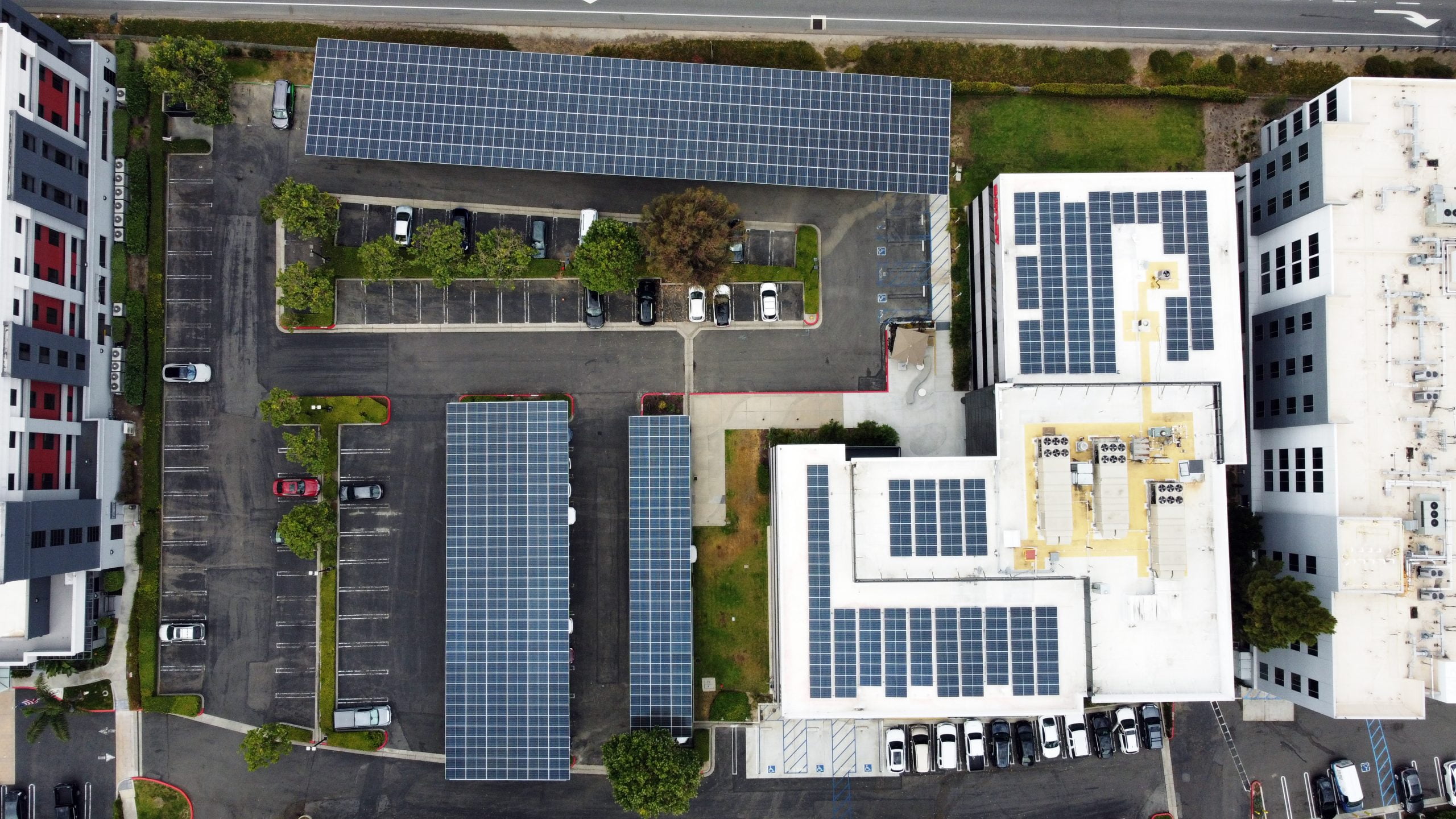
Real-World Results: Businesses Already Making the Switch
Forward-thinking businesses in California are already capitalizing on solar and energy storage to combat rising energy costs. For example, Big Brothers Big Sisters of Orange County recently installed a commercial solar system, benefiting from lower operational costs while enhancing their commitment to sustainability.
Similarly, tech companies and manufacturing facilities are leading the charge, leveraging available incentives to future-proof their operations. These businesses are achieving measurable savings and greater energy independence throughout the life of their new systems.
The Time to Act Is Now
With the energy landscape rapidly evolving, waiting to invest in solar could mean missing out on significant financial and strategic advantages. 2025 Rising energy rates in California, driven by AI demand and nationwide electricity consumption further increasing costs, coupled with current tax incentives, make this an optimal year for businesses to transition to solar.
Next Steps: Explore Your Solar Options
Revel Energy specializes in delivering customized solar and energy storage solutions that align with your business’s energy goals. With a track record of helping companies across industries lower costs and enhance sustainability, our team can guide you through every step of the process – from system design to installation and ongoing maintenance.
Don’t wait for energy costs to climb even higher. Contact Revel Energy today to schedule a consultation and take the first step towards achieving energy independence.
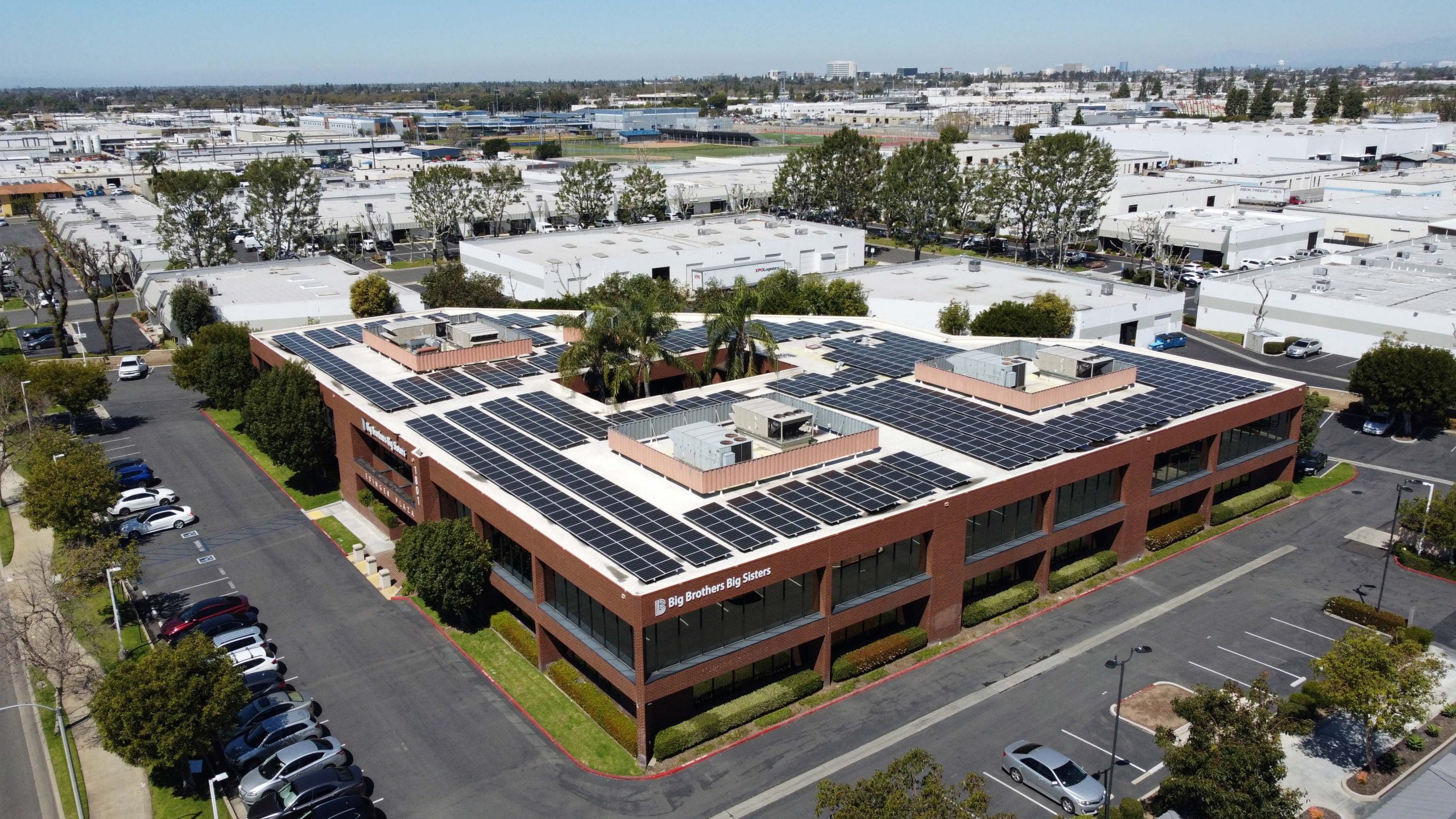
Commercial grade rooftop solar is ideal for: manufacturing, warehousing, logistics, industrial, retail, hospitality buildings and more with over 10,000 sq. ft. rooftops.
CARPORT SOLAR
Free standing carport solar generates added solar power for properties with limited rooftop space. Added benefits include shading and protection for employees vehicles.
Crucial for reducing peak demand charges. Automated to supply electricity when your panels won’t. Energy storage is ideal for businesses that incur significant peak charges.
As the popularity of electric vehicles increase, so does the demand for on-site charging. This sustainable amenity has become a parking lot fixture for competitive employers.
OUR SERVICES
TURNKEY COMMERCIAL GRADE SOLAR, ENERGY STORAGE, LED LIGHTING AND MORE.
PROFESSIONAL GUIDANCE
CUSTOM TAILORED PLANNING
CONSTRUCTION & INSTALLATION
CSLB #1106092
Client Testimonial: Kelemen Company
Corporate Business Park in Irvine, CA has created significant electricity cost savings through commercial solar installed across the 5-building business park.
Client Testimonial: Tice Gardner & Fujimoto LLP
See how this CPA firm saved on electricity and gained valuable tax credits through commercial solar that they used to keep cash in the businesses.

